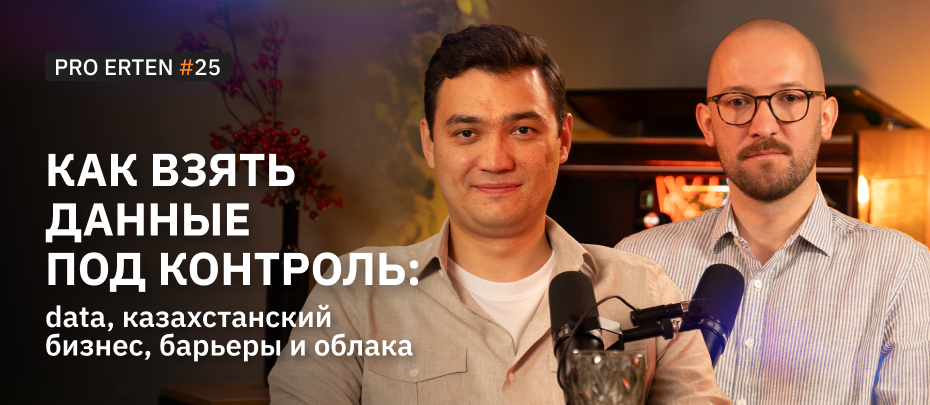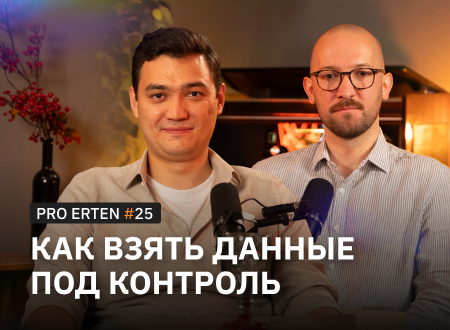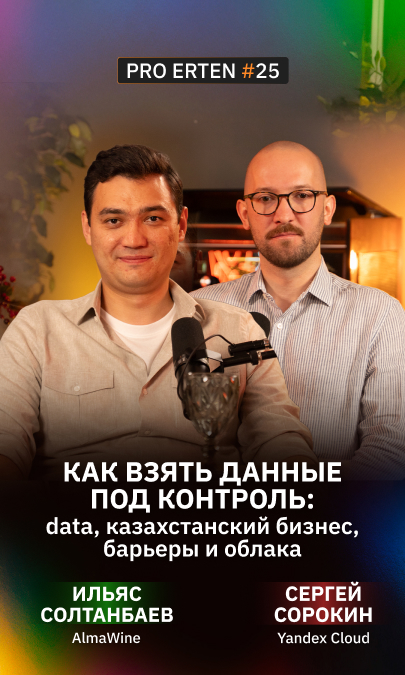Whether it’s digging a foundation, constructing a building, hauling cargo, demolishing an old structure, or clearing debris, these heavy tasks require serious equipment like excavators, loaders, bulldozers, and cranes. The challenge is finding the right equipment—on time and with a skilled operator. That’s where TapQan steps in. This Kazakhstan-based platform, powered by AI, promises to streamline the construction equipment rental market, making it easier for companies and individuals to get the machines they need, when they need them.
Follow Kazakhstan’s Startup Movement in the "100 Startup Stories of Kazakhstan", a collaborative project by ER10 Media and Astana Hub. This initiative highlights the most innovative Kazakh startups, showcasing projects that stand out for their creativity and impact. Among the heroes are Astana Hub residents, as well as creators of other innovative technological products and services. The content is available in Kazakh, Russian and English.
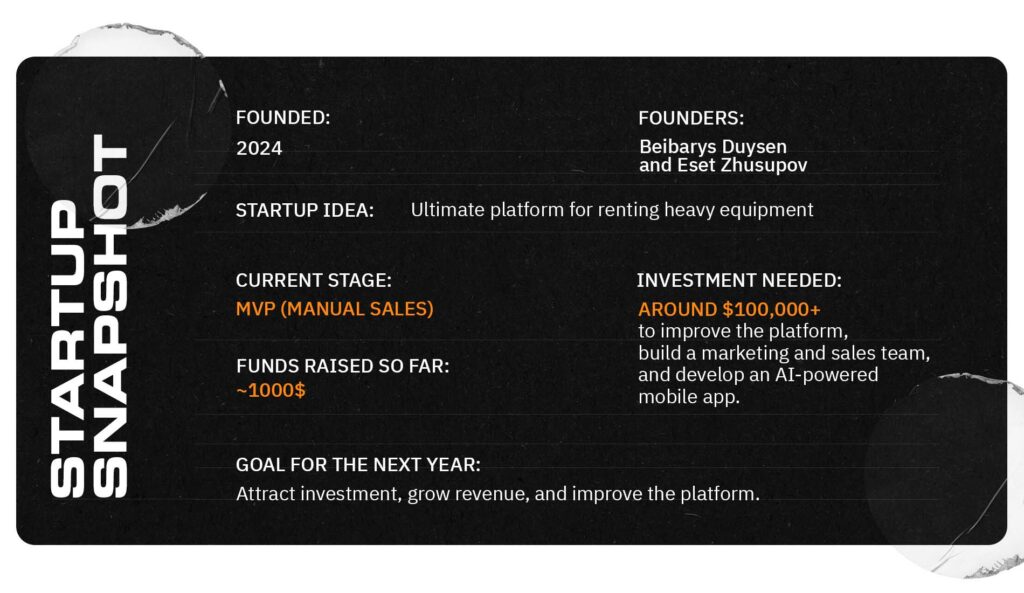
A Market Problem on an Industrial Scale
– Tell us how you got into business and became a startup founder?
– I’m a mechanical engineer by education. I studied in China and later graduated from the Kazakh-British University with a degree in engineering and industrial project management. After receiving my diploma, I started working in the mining industry. Later, I founded my own company in the sector, where we’re involved in extracting and processing minerals, and producing inert materials, supplying three regions of Kazakhstan.
While working in the industry, I encountered a significant challenge. Mining is tough—heavy loads, demanding environments, and frequent machinery breakdowns. When an excavator, bulldozer, or loader breaks down, it can halt an entire team or even stop a project completely. A single missing piece of equipment can paralyze the whole operation. In those situations, finding a replacement fast becomes critical, but the process is often complicated.
Online searches for rental equipment take too long. You have to call multiple providers, gather details, negotiate pricing, and still, there’s no guarantee the equipment will arrive on time or that the operator will be skilled enough.
Owners of heavy machinery face their own difficulties, too. Finding reliable customers, ensuring prompt payment, and sometimes even dealing with clients who order the wrong equipment—for instance, renting a bulldozer when they actually need an excavator—are common issues. This results in wasted time and financial losses for everyone involved.
This market inefficiency sparked the idea for TapQan. I spent three years studying the problem from both sides. I rented machinery myself and also leased out my company's machines to other clients. After gaining a deep understanding of the issue, I gathered a small team of like-minded people and approached a friend who was already experienced in launching startups. I shared my idea to create an app and pitch it to investors.
Through Knowledge to the Stars…
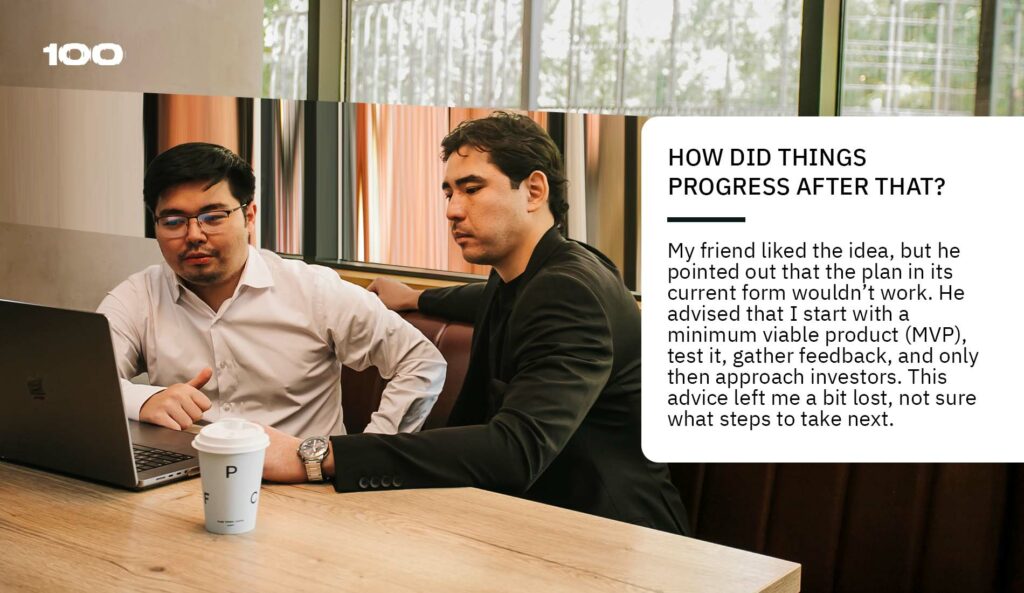
– How did things progress after that?
– My friend liked the idea, but he pointed out that the plan in its current form wouldn’t work. He advised that I start with a minimum viable product (MVP), test it, gather feedback, and only then approach investors. This advice left me a bit lost, not sure what steps to take next. That’s when I came across an advertisement for Astana Hub’s Startup Garage program for beginner entrepreneurs. Without hesitation, I applied. Our project was accepted for the initial training phase.
Working with mentors at Astana Hub, we developed a presentation for the project. Out of 300 teams, we were selected for the three-month Startup Garage incubation program, which included coaching and mentorship. Over time, weaker teams were eliminated, and eventually, only 15 startups, including ours, made it through.
– What’s the main idea of your startup? Do you help companies and individuals find specialized equipment?
– Yes, exactly. Our platform connects clients looking to rent heavy equipment with machinery owners—like excavators and cranes. We help renters find the right machine for their needs and ensure equipment owners get a steady stream of clients.
– What difficulties did your startup face as it developed?
– Honestly, we didn’t face many difficulties. In the beginning, I was a little lost when I didn’t know how to get the startup off the ground. But the Startup Garage program really clarified the process, and we avoided making major mistakes. If we hadn’t had that guidance, we might have gone down the wrong path.
One challenge we still face is communicating with customers. For example, someone might call saying they need a machine to demolish a house. After asking a few more questions, I find out they only need to take down a small shed. A large tracked excavator isn’t necessary—instead, they need a smaller, multi-purpose machine called a “Rooster,” which has both a bulldozer blade and an excavator bucket. From experience, I also know that demolition work produces a lot of construction waste, so I suggest an additional waste removal service.
Thanks to this expertise, we completed the job successfully and were able to provide the extra service. In the future, though, these interactions will be managed by AI.
An AI to Find Your Excavator
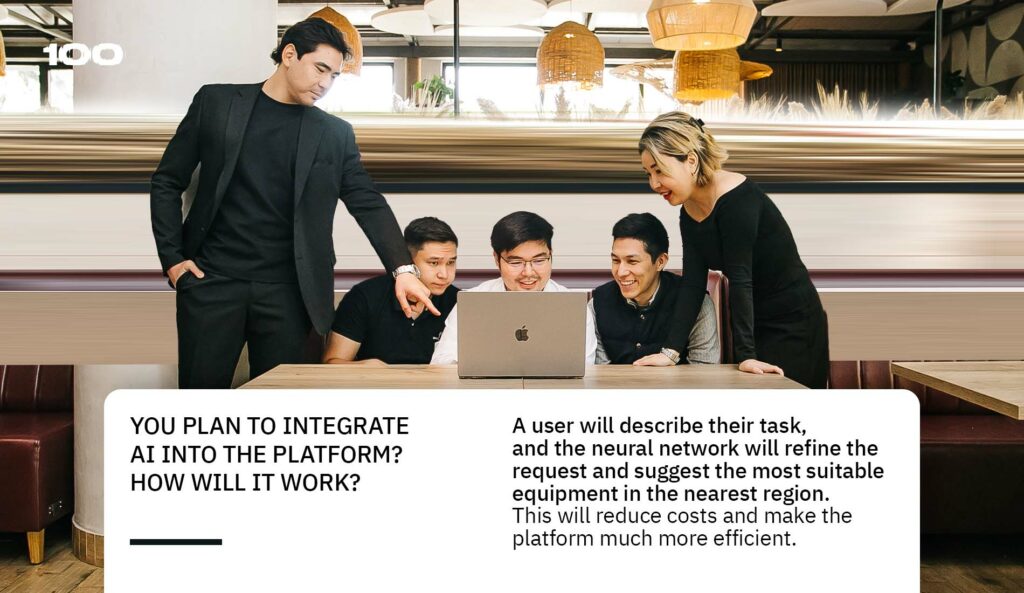
– You plan to integrate AI into the platform? How will it work?
– Our co-founder, Eset Zhusupov, is an expert in artificial intelligence. Rather than turning into a large call center with hundreds of consultants, we aim to integrate an AI model that can handle client inquiries. A user will describe their task, and the neural network will refine the request and suggest the most suitable equipment in the nearest region. This will reduce costs and make the platform much more efficient.
– What is the monetization model of your startup?
– We take a 10% commission from both sides of the transaction. For instance, if you need a construction crane for a day, and the rental price is 100,000 tenge, the contractor offers the machine for 90,000, and the renter pays 110,000. The platform’s commission is 20,000 tenge.
Beneficial for everyone
– Is this system beneficial to participants on the platform?
– Yes, it’s beneficial for both sides because we provide a service that addresses the needs of everyone involved. For those renting equipment, we solve the problem of reliability—both with the equipment itself and the provider. We guarantee that, for example, a bulldozer has passed inspection and that its operator is properly qualified. Plus, we match the equipment as close as possible to the job site, so the customer doesn’t have to wait long.
Another interesting aspect is payment flexibility. For instance, a customer might want to pay via bank transfer, but the equipment owner doesn’t have an account and prefers cash. We handle that too. The renter transfers the money to us, and we pay the contractor in cash.
Additionally, we act as a payment guarantor for the contractor. Even if there’s a delay from the customer’s side, we ensure the contractor gets paid. And most importantly, we provide a steady stream of clients for equipment owners.
Overall, it’s similar to how Uber or Yandex Taxi operate, and everyone’s happy with the model.
– What stage is your startup at right now?
– We’re currently at the MVP stage. We’ve already set up a landing page and attracted more than 20 clients, working in B2B, B2C, and B2G sectors. Right now, we’re building out our team and seeking investment.
– What kind of investment do you need to grow TapQan?
– Ideally, we’re looking to raise $200,000. Of course, we’re open to discussing any offers from investors individually.
A Big Bulldozer Needs a Big Market
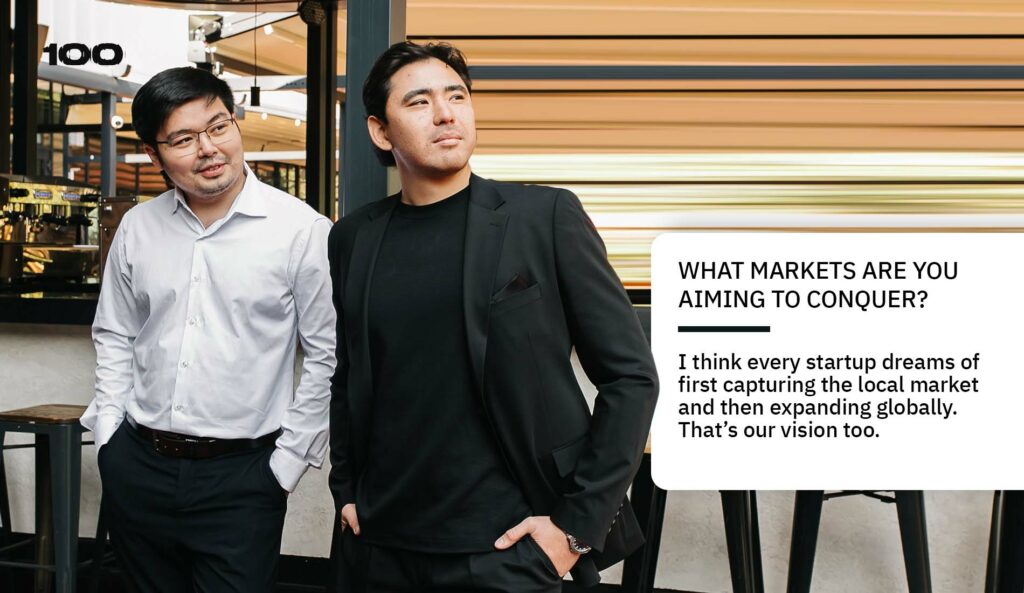
– What markets are you aiming to conquer? Is the goal to become an international unicorn?
– I think every startup dreams of first capturing the local market and then expanding globally. That’s our vision too. First, we plan to establish ourselves in the Almaty market, then expand to other regions, and eventually enter the CIS, European, and U.S. markets. We have a strong team, a great product, and we believe these goals are achievable.
– Do you have competitors in international markets?
– During our research, we didn’t come across any platforms exactly like ours. There are some indirect competitors, though. For example, some create simple classified ad boards like OLX but specifically for heavy equipment. Our platform, however, guarantees payments and supplier reliability while also offering consultation services.
That said, it’s possible that similar projects could emerge in the near future. I’ve already been approached by other startups with similar ideas who suggested we join forces, but we couldn’t find common ground.
– Does your platform address any social issues?
– I believe so. I often travel to different regions and see how people sell their possessions or take out loans to buy heavy equipment, hoping to earn a living for their families. They find and complete jobs, pay off their loans, and manage to support their families—many of which are large. But it’s hard for them to find clients and make ends meet. I’ve talked to these entrepreneurs, and they’re really interested in the growth of our platform because they understand that it will bring them more orders. Even if they get 50% more clients, that would be a huge boost for them. We truly want to help these people solve their financial problems, improve their quality of life, and contribute to regional economic growth.
Hitting the Target
– What inspires you in your work?
– I’m inspired by successful colleagues, many of whom are younger than me but have already achieved great things. It’s not envy—it’s their success that motivates me to set and achieve my own goals.
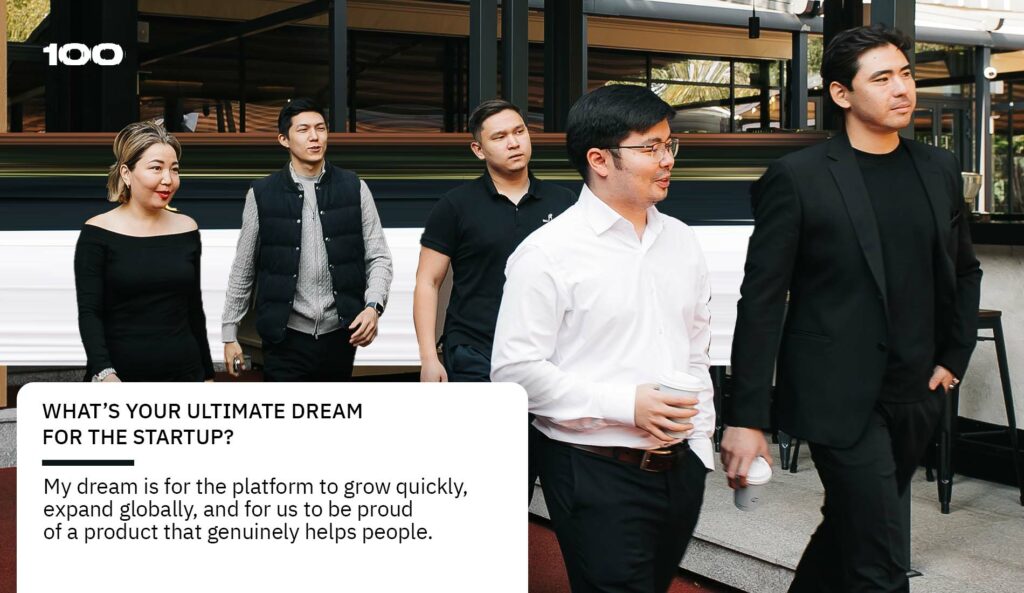
– What’s your ultimate dream for the startup?
– My dream is for the platform to grow quickly, expand globally, and for us to be proud of a product that genuinely helps people. That’s the main dream. Of course, financial success is important too, but we know that if the project is successful, the finances will follow.
– If you could compare your character to a sport, which one would it be?
– I’d say my personality aligns with shooting. I’m calm, I make measured and rational decisions, and I always aim for my goal. It’s important for me to carefully choose the target, focus, and make a precise shot.
– What does the future of your startup look like?
– We have a clear plan for the coming years. By the end of 2025, we aim to reach a turnover of $300,000 and break even. In two years, we expect to be present in all major cities across Kazakhstan. In three years, we plan to cover all regions, including rural areas. After that, we’ll scale to neighboring countries.


